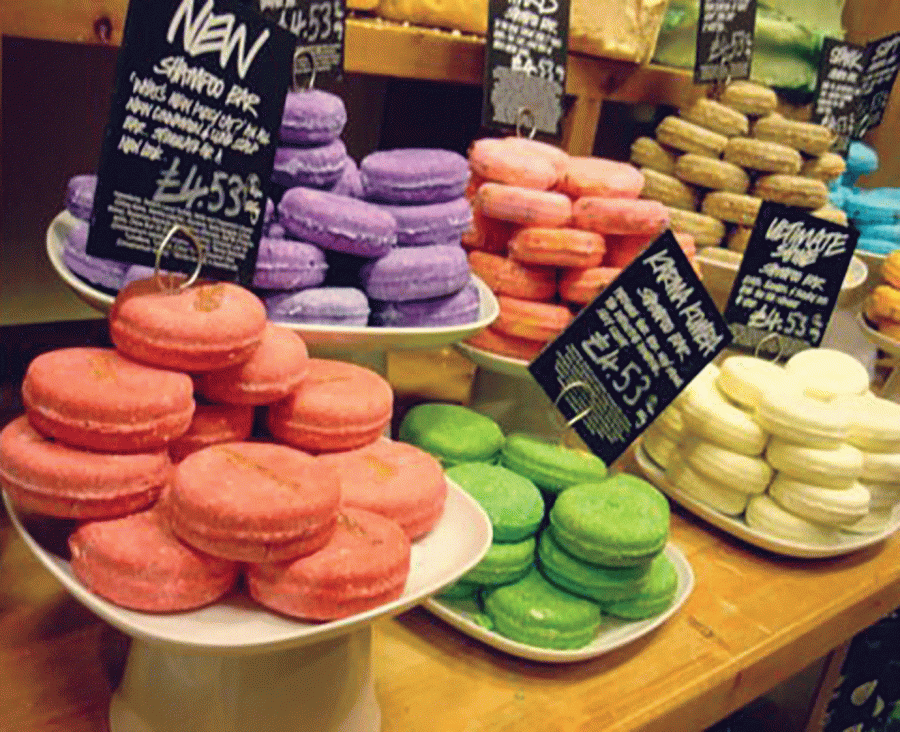Greening Your Bathroom: A Guide to Alternative Health Products
The second installment of Students for Environmental Action’s (SEA) Smart Consumption Workshop series took place on Thursday, March 28. This week’s theme was titled “Greening Your Bathroom,” where leaders Kate Hinsche, Christina Weiler and Victoria Basulto informed the audience on how to make their bathroom a sustainable space.
One of the difficulties to approaching the subject of eco-friendly bathroom spaces is that beauty and health products have many different functions. Most often, people use a different brand or product for the same activity such as brush- ing their teeth or cleaning their body, which makes it hard to address sustainable purchasing options on a larger scale.
Weiler suggests that you avoid wasting products you already have. She recommends using all of your products to completion before purchasing more items to green your bathroom. When your products begin to wear out, recycle the plastic containers. Weiler suggests taking your worn-out products to stores like Lush and Sephora, which accept used cosmetics and cosmetic containers and will recycle them for you. The bonus is that these stores will often give you a gift certificate or coupon in return for recycling your products.
Another option for purchasing cosmetics is “Clean At Sephora.” This brand is concerned with removing harmful chemical ingredients, such as parabens or formaldehyde, from beauty products. “Clean at Sephora” is also helpful in discovering cleaner and more eco-conscious products that beauty stores carry.
SEA President Kate Hinsche led the next section of the presentation, which focused on bathroom products; she recommends buying tree-free toilet paper, which is often made from a combination of bamboo and sugarcane. If this is not an option at your local stores, she suggests buying recycled toilet paper, which is made from recycled office trees.
On a humorous aside, Hinsche made a joke about eco-friendly toilet paper that is made from recycled materials.
“We don’t want virgin trees wiping our butts,” she said.
Hinsche also gave recommendations on how and where to shop for alternative products. When trying to find sustainable options for typical bathroom products, popular websites include the Plastic Free Shop, Amazon, Etsy and Sustain Yo Self.
When it comes to haircare, there are many options to reduce your environmental and social impact. One common product that has become increasingly popular at many beauty shops is shampoo bars. This product is solid and made from compact shampoo, which helps to reduce plastic waste and packaging. In addition to taking significantly less water to make, shampoo and conditioner bars are a travel friendly alternative as well, as airlines often have limits on liquid containers that can be carried on-board.
“Bamboo toothbrushes could have a large impact on this campus, as well as shampoo bars and toothpaste tablets. These products are likely the most applicable to Colgate,” Weiler said.
Basulto and Hinsche also discussed a company called Plaine, which refills their shampoo bottles at wholesale prices either through a subscription mail service or in-person at stores. At a first-time price of $30, Plaine’s hair care products may seem a little pricey. However, with significantly cheaper refill costs and a lower environmental footprint, sustainable options such as Plaine could be the solution to our future.
SEA had several sustainable options for period products that are safe and sanitary for female-identifying people. Companies such as Thinx and PantyProp make period underwear, menstrual cups and organic tampons. Many of the menstrual products we currently use are bad for us and the environment because they are full of chemicals and involve a lot of plastic and cotton waste.
Although many of these sustainable products can be more expensive than their cheaper counterparts, the leaders of SEA recommended making the investment. When thinking about the higher price of some sustainable products, Weiler calmly answered the audience’s questions and provided a positive vision for our consumer purchases.
“Colgate students and people everywhere have the incredible opportunity to change their lifestyles as soon as they run out of the products they have now. Purchasing the same type of products in an all-natural format in compostable packaging or package-free is liberating. It’s really that easy,” she said.
The next installation of SEA’s Smart Consumption Workshop series will be held in Lathrop 207 at 12:15 on Thursday, April 4, and the leaders will passionately discuss the topic of “Eating as Activism.
Contact Caylea Barone at [email protected].
Caylea Barone is a senior from LaGrangeville, New York concentrating in environmental studies and art and art history with an emphasis in studio art. She...







